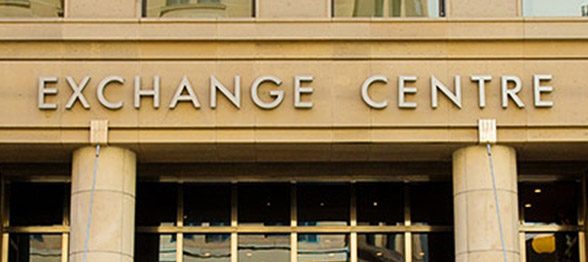Building competitive websites for the hotel sector
- Read time: 4 mins
- Tech level: low
- Key point: website design for the hotel sector requires several components that differ from other industries

The hotel sector is a highly competitive market. Consumers are spoilt for choice, especially with the rise of travel booking and/or hotel comparison websites.
A hotel website is often the first point of contact with a potential new customer. It is essential that providers showcase their offering by powerfully communicating its benefits.
There are several key elements that must be integrated to ensure your website strategically positions your hotel within its market segment.
Cleverly crafted, benefit driven content on an intuitive and mobile friendly website is the key to connecting potential customers with your brand, taking them on the journey from browser to buyer.
Start with personas

Personas should be developed at the beginning of the web project to minimise weaknesses, expand on strengths, and maximise overall functionality.
Once your organisation has identified its personas it can build a web presence that powerfully engages customers. Personas will help you understand who your ideal customers are and what they want from your website.
Remember that personas are based on both qualitative and quantitative research in conjunction with data derived from web analytics. They are always based on observed behaviours of real users, so research is essential.
Personas will guide the content, feature set and design decisions of each page. This will work to optimise the user experience as they navigate through the content.
Intuitive to navigate for a seamless web experience
It's important that web design is done so that prospective customers see your hotel as their first choice. That's why site navigation must be seamless.
Taking the frustration out of the user experience is essential. If a prospective customer can't find what they are looking for, it can mean your hotel will lose a sale.
This can impact future revenue, with a previous user avoiding your website because of a negative experience. So, it's essential that users can find what they are looking for, quickly
There are several powerful techniques that can assist in creating a website that is easy for visitors to navigate. Card sorting and tree testing will help your visitors find what they are looking for easier and faster.
These techniques enhance the user experience by helping them get the benefits of your offering quicker.
Mobile friendly

Growth in mobile users dictates that hotel websites must be built in consideration of this market segment. There are several elements that must be integrated when building websites for mobiles:
- responsive design: web developers can create a website that can be easily viewed on multiple devices. Responsive design allows websites to detect users' screen size and adjust the layout for the appropriate orientation.
- viewport meta tag: turns a regular web page into a responsive design page. It gives the browser instructions on how to view the page and how the content is scaled and sized. The viewpoint can be configured to suit multiple specifications.
- high resolution photos: images on a responsive website need to be high res to ensure the user experience is of a high standard. High res photos help to minimise issues such as blurry images.
- YouTube videos: hotel providers often showcase their offering using videos. However, videos can be difficult to download on mobile devices. The embed code on YouTube videos makes them ideal for mobile devices as they are optimised for responsive design websites.
- test often: once a responsive design website has been built it will need to be tested on multiple devices to ensure usability.
Great content is non-negotiable

Content is the key to building engaging conversations with target audiences.
Websites are often the place where hotels make their first impression on potential new customers. It's an opportunity that should not be missed - but often is. There are several essential elements to include:
- high-quality photos: great images work to powerfully communicate the benefits of your offering more than any other area of content. Spend the money on a professional photographer who has hotel industry experience.
- showcase facilities: be sure to highlight hotel amenities that guests can experience as part of their stay. Include room features (fridge, tv, Wifi, views) and other benefits such as restaurant, pool, gym, kids club, 24 room service and additional concierge services to help promote your offering.
- rooms and rates. Provide clear room and rate details with accompanying photos to help encourage visitors to take action and book a room.
- content marketing. Continuous delivery of quality content that is issued within a marketing strategy will help build brand awareness. Blogs, newsletters, social media and other content will help drive traffic to the website and increase business.
- highlight your point of difference. Highlight any unique benefits or qualities of your hotel. Is it located near a popular attraction? Has anyone famous stayed there? Does it have a unique history?
Include guest reviews for great for SEO and building brand value
Guest reviews are one of the most important marketing tools for hotel providers. They serve a dual function for the hotel sector - they are great for SEO and for building brand value and trust.
Guest reviews work as fresh content, which is essential for great SEO and helping to ensure a rise in Google rankings.
In addition, most consumers will consult with guest reviews before they consider booking a hotel room. Many will only take action and book a room if there are positive reviews.
Not including guest reviews could have a serious impact on achieving your business goals.
Clear location and contact information
Hotels are all about location. If potential customers can’t find where you are located, they may take their business elsewhere.
Provide clear location details that explain where and how guests can find you, as well as phone numbers, an email address and check-in/check-out hours.
Provide tools like a location finder and a Google Map reference along with images of the hotel, all of which will make it easier for customers to find you.
Enterprise CMS website helps ensure website uptime and security
An Enterprise CMS is usually more secure than other systems such as WordPress, which happens to be the most hacked system on the planet. A high standard of security is essential when people are sharing their personal details when making a reservation online.
Another important consideration is uptime of the website. If your potential guests can’t access your website, then they might take their business elsewhere.
Using an enterprise-class CMS means that plans and processes can be set in place that wrap around website uptime, keeping you online and available to customers.
Experts in building websites for the hotel sector
Contact Polished Pixels for assistance if you are planning a web project and want help.
We are a leading Sydney based website agency providing expert website design.
All of our team members have previously worked in large organisations. We understand the frustrations that come with not being able to improve a website for a large organisation such as a hotel.
We can help with all aspects of website design for the hotel sector. We have worked with several leading companies in the hotel and hospitality sector; including the Executive Hotel, Executive Conference Centres and Lachlan's Restaurant.
Services include enterprise class CMS implementation, web design, website content strategy, usability and customer centric design.
The result is a strong and secure web presence created with significant savings on company time and budgetary resources.
The online Windows XP simulator runs in a web browser and its operation imitates the operating system. You can use it to prank someone.






